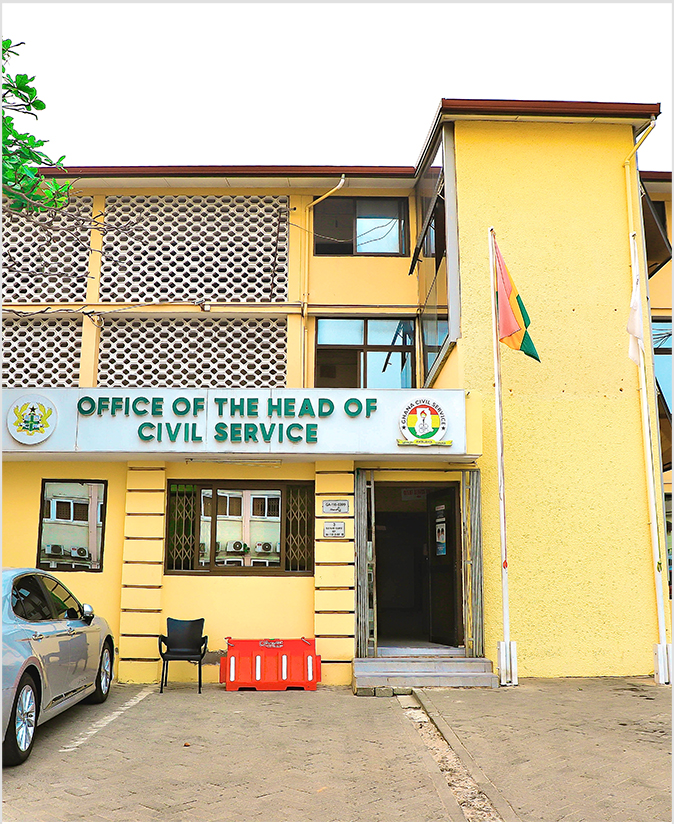- ABOUT WHO WE ARE
- DIRECTORATES WORK FORCE
- TRAINING INSTITUTIONS CAPACITY BUILDING
- DEPARTMENTS SPECIALIZED UNITS
- NEWS HAPPENINGS
- DOWNLOADS DOCUMENTS
- EVENTS GATHERINGS
- CONTACT GET IN TOUCH
In accordance with Article 190 of the 1992 Constitution, the Civil Service forms part of the Public Services of Ghana. In accordance with Section 1(3) of the Civil Service Act, 1993 (PNDC Law 327), the Service comprises service in a civil office of the Government.
The Civil Service is the main agency through which the Executive arm of Government operates.
One critical role of the Ghana Civil Service is its stabilizing influence on the political life of the country. During political transition periods, the Civil Service as the permanent Government institution holds the fort until the incoming Political Administration is in place.

The PARDIC was set up in 1983 by the Provisional National Defence Council (PNDC) Government to review the earlier reforms, particularly the Decentralization programme and to accelerate its implementation. One major recommendation of the PARDIC was the introduction of 4 functional Directorates for Ministries and refocusing the Ministries mandate on policy formulation, monitoring and evaluation.
The Civil Service Reform Programme (CSRP) was part of the Government of Ghana’s Economic Reform Programme (ERP) Initiative.
The objective of CSRP was to make the Civil Service:
Key Achievements
The CSRP was a Public Service wide reform programme which consisted of a number of components rather than being carried out as an OHCS central exercise, executed from the core of the Civil Service. The CSRP and subsequent activities were not sufficiently understood, conceived, planned or managed.
CIVIL SERVICE PERFORMANCE IMPROVEMENT PROGRAMME (CSPIP) 1995
The Civil Service Performance Improvement Programme (CSPIP) was a homegrown reform initiative launched in March 1995 with technical and financial support from the UK Department for International Development (DfID). It had an overall objective of promoting improvements in the Civil Service and enhancing efficiency and effectiveness in the delivery of services in a client-sensitive manner in all Civil Service institutions. It undertook to do this through institutional capacity strengthening programmes in MDAs and instituting a good governance culture in all aspects of the organization and management of the Civil Service. It introduced important management concepts such as the development of performance improvement plans into the work of MDAs.
As part of the decentralization programme the Local Government Act 462 (1993), Local Government Service Act 656 (2003) and the Local Government (Departments of District Assemblies (Commencement) Instrument, 2009 (L.I. 1961) established the Local Government Service as separate and distinct from the Civil Service with its own Council and service conditions. Consequently, in March 2011, the Local Government Service was decoupled from the Civil Service.
The decentralization process was further strengthened with the amalgamation of all the legislation relating to Local Government structures and governance systems into the Local Government Act 2016, Act 913.
As indicated earlier under the definition of the Civil Service, the current Civil Service was established under Civil Service Act, 1993 (PNDCL 327).
The mandate of the Ghana Civil Service is to assist the Government in the formulation and implementation of Government Policies for the development of the country.

